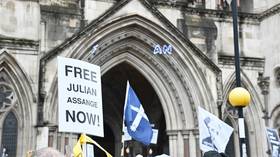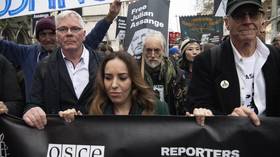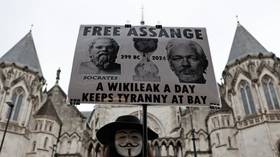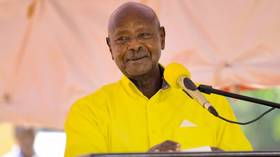What UK High Court’s decision in Julian Assange case means

WikiLeaks founder Julian Assange scored a victory on Tuesday in his years-long legal battle in the UK to avoid extradition to the US. Not much has changed to help his present condition, but his defense has been given another day at court.
Assange, 52 has been held in a top-security British prison since 2019. He has endured solitary confinement in Belmarsh prison, which is usually reserved for dangerous criminals, while awaiting trial for a bail violation. The US indicted him under the country's Espionage Act a month after his arrest, with Washington’s lawyers proceeding to file an extradition request. Supporters say he is being persecuted by the US and the UK for political reasons.
In 2021, a British district judge denied the extradition bid, recognizing Assange may commit suicide while in US custody, though dismissing other defense arguments. The Americans appealed the decision and offered assurances that the suspect would be not be mis-treated.
The US consequently won the case, and in June 2022 then-Home Secretary Priti Patel authorized sending Assange to the US. After several setbacks, his lawyers asked the High Court in February for a chance to challenge the original dismissal of the bulk of their case.
Judges Victoria Sharp and Jeremy Johnson ordered on Tuesday that the extradition be halted, giving the US three weeks to provide additional guarantees that the rights of the defendant would be observed.
In particular, the UK wants a pledge that Assange would not face solitary confinement or be held incommunicado. There is concern that the Australian citizen would be put into a so-called communications management unit (CMU) at a US federal prison, which critics call a way to silence dissenters. WikiLeaks has pointed out that American guarantees are “inherently unreliable,” according to prominent rights groups.
If the justices had ruled against Assange this week, his options in the British court system would have been exhausted. He could have found himself in US custody within 24 hours to 28 days, unless a foreign party intervened. His legal team had planned to issue a plea to the European Court of Human Rights for an emergency injunction.
Assange supporters say he is facing US retaliation for publishing embarrassing state secrets, including evidence of alleged crimes during the military campaigns in Iraq and Afghanistan.
The case has serious ramifications for freedom of press in the West. President Barack Obama reportedly declined to press charges against Assange due to the so-called ‘New York Times dilemma’ – reasoning that the transparency activist did not differ from legacy media outlets in his journalistic work.
The Department of Justice under President Donald Trump accused Assange of aiding and abetting whistleblower Chelsea Manning, when she leaked classified documents to WikiLeaks in 2010.
President Joe Biden has rejected calls to drop the charges. According to the Wall Street Journal, the US government is considering striking a plea bargain with Assange, under which he would plead guilty to a misdemeanor offense in exchange for the extradition request being withdrawn.














